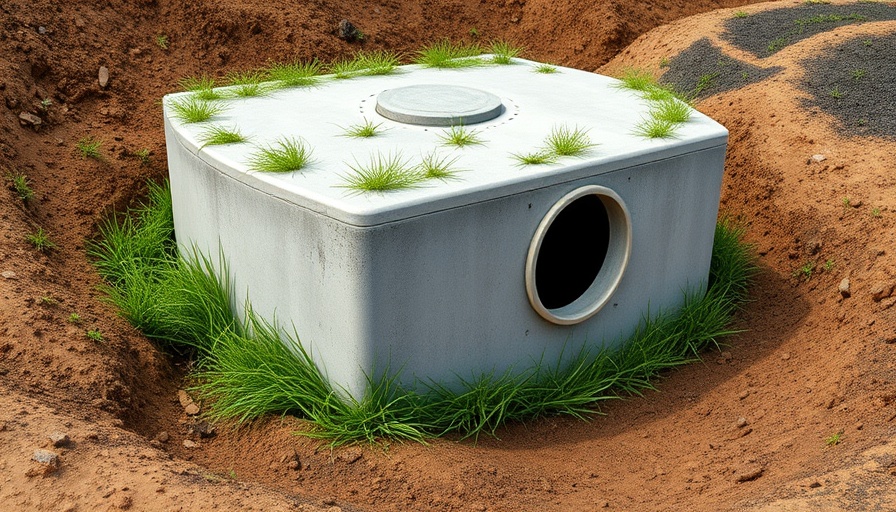
Understanding the Basics of Septic Systems
As you explore the real estate market, you may come across homes with septic tanks. These systems, which treat wastewater on-site, are common in rural areas and less populated regions of the U.S. Approximately one in five homes utilizes these systems, making it crucial for potential buyers to grasp both the benefits and drawbacks.
The Financial Advantages of Septic Systems
One significant pro of purchasing a house with a septic tank is cost savings. Homes with septic systems eliminate the need for municipal sewer connections, thereby removing monthly sewage fees from your utility bills. This can lead to considerable savings for homeowners, especially in regions where sewage costs are high.
Moreover, with proper maintenance, septic systems can last for decades, translating to long-term savings. Homeowners can further reduce costs by adopting water-saving practices and being cautious about what substances are disposed of down drains.
Environmental Benefits of Septic Systems
Septic systems are not just budget-friendly; they are also environmentally responsible. A properly functioning septic system encourages homeowners to adopt eco-friendly habits, such as conserving water and minimizing waste. In the event of a malfunction or a leak, the damage remains localized, unlike municipal systems, which can lead to broader environmental hazards.
The Challenges of Septic Maintenance
While there are notable advantages, buying a home with a septic tank brings its share of challenges. One important factor is the mandatory maintenance. Homeowners must schedule regular inspections and pump-outs, which may require hiring professional services. Neglecting this duty can lead to system failures, resulting in costly repairs and unpleasant situations.
Inspections and Future Resale Considerations
Prospective buyers should prioritize inspections of septic systems during the home buying process. These inspections provide insight into the system's current condition and durability. Regular maintenance not only ensures functionality but also can enhance the property's resale value. Buyers should be aware that homes with septic systems may require extensive documentation proving upkeep during resale, which might deter some potential buyers.
Comparing Lot Sizes and Home Features
Another consideration when choosing a home with a septic system is the potential for larger lot sizes. Because septic systems require space for their drainfields, homes equipped with these systems often sit on plots that offer more privacy and outdoor activities, appealing to those who value gardening or open spaces.
In contrast, homes connected to city sewer systems tend to be more densely packed. Therefore, if you are considering a home where the outdoor environment is a priority, a septic system may align with your expectations.
Final Thoughts: Is a Septic Tank Right for You?
Purchasing a home with a septic tank presents both opportunities and challenges. The cost savings, environmental benefits, and larger lot sizes can make these homes appealing options for many buyers. However, be prepared for the maintenance responsibilities, the risk factors, and the unique regulations that come with owning a septic system.
As the real estate landscape continues to evolve, understanding the full spectrum of septic systems will arm you with the critical insights needed to make an informed decision. So weigh your options carefully, look beyond the surface, and ensure that your investment aligns with your lifestyle preferences and financial goals.
The Right Steps Moving Forward
If you’re embarking on the journey of buying a home with a septic system, take proactive steps by consulting professionals, asking questions about maintenance history, and evaluating the property's overall condition. Being informed is the best strategy for navigating the complexities associated with septic tanks and making your new house a true home.
 Add Row
Add Row  Add
Add 




 Add Row
Add Row  Add
Add 

Write A Comment